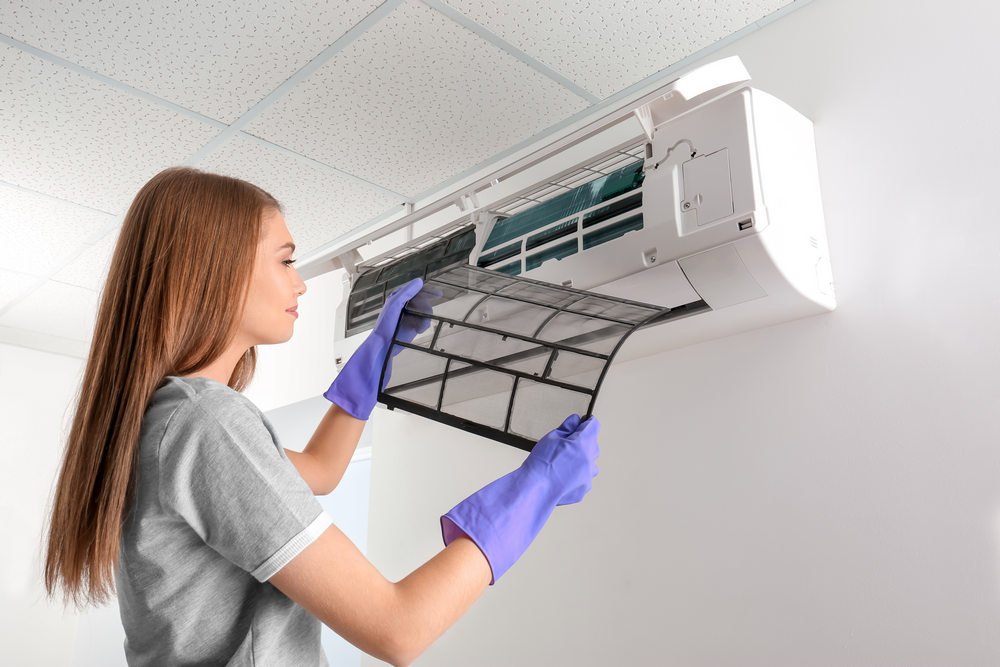When your air conditioning smells bad, it can be both unpleasant and alarming. Many homeowners and business owners face this issue, and finding natural methods to tackle it can be a refreshing approach. Addressing the problem promptly not only improves indoor air quality but also enhances the overall ambiance of your space. In this article, we will explore various natural methods to address the issue of bad odors emanating from your air conditioning system.

Understanding Why Air Conditioning Smells Bad
Before diving into solutions, it’s crucial to understand why your air conditioning smells bad. Common causes include mold and mildew growth, accumulated dust and debris, and even small animals finding their way into the ductwork. These factors can contribute to a musty or foul smell whenever the AC is in operation.
Identifying the Source of the Odor
The first step in tackling any odor issue is identifying the source. Check the air filters, ducts, and the immediate surroundings of your AC unit. Often, a thorough inspection can reveal visible mold growth or other contaminants contributing to the odor.
Inspecting Air Filters
Air filters play a significant role in maintaining clean air circulation. If they are clogged or dirty, they can cause the air conditioning system to emit unpleasant smells. Regularly cleaning or replacing filters can prevent such issues.
Checking Ductwork
Ducts can accumulate dust and debris over time. It is essential to ensure that they are clean and free from blockages to prevent odors. Consider using a duct cleaning service to maintain the cleanliness of your ductwork. For more on this, you can visit odor in house vents guide.
Natural Methods to Address the Smell
Using Vinegar
Vinegar is a natural deodorizer and can be used effectively to combat bad smells. Simply place a bowl of vinegar near the air vents to absorb odors or use a vinegar solution to clean parts of the AC unit.
Baking Soda Deodorization
Baking soda is another excellent natural odor absorber. Sprinkle it on the surfaces of the AC unit or place an open box nearby to help neutralize odors.
Essential Oils
Essential oils not only mask bad odors but can also provide a refreshing scent. Add a few drops of your favorite essential oil to a cotton ball and place it near the air vents.
Regular Maintenance and Prevention
Regular maintenance is key to preventing future odor issues. Schedule routine checks and cleanings for your air conditioning system. It is also wise to maintain a checklist to ensure all parts of the system are functioning optimally. For a comprehensive checklist, visit odor prevention checklist.
Improving Ventilation
Enhancing the ventilation in your home or business can also help in reducing odors. Ensure that your space is well-ventilated to allow fresh air circulation.
Dehumidifiers
High humidity levels can contribute to mold growth, leading to bad smells. Using dehumidifiers can help maintain optimal humidity levels, preventing mold and mildew development.
When to Seek Professional Help
If natural methods do not resolve the issue, it may be time to seek professional assistance. Persistent odors could indicate more significant problems within the system that require expert intervention. For detailed guidance on dealing with musty smells, consider visiting Aircomechanical.
Conclusion
Addressing the issue of air conditioning smells bad with natural methods is both effective and sustainable. By understanding the causes and implementing the above solutions, you can enjoy a fresher, healthier indoor environment. Regular maintenance and timely interventions can prevent future odor issues, ensuring your air conditioning system remains efficient and pleasant.

FAQ Section
Why does my AC smell musty?
A musty smell is often caused by mold or mildew growth within the AC system. This can occur due to high humidity levels or inadequate maintenance.
Can I use essential oils in my AC unit?
Yes, essential oils can be used near the air vents to provide a pleasant scent and mask bad odors. However, they should not be directly applied to the components of the AC unit.
How often should I clean my air filters?
It is recommended to check and clean your air filters every three months. More frequent cleaning may be necessary if you have pets or live in a dusty environment.
This article contains affiliate links. We may earn a commission at no extra cost to you.